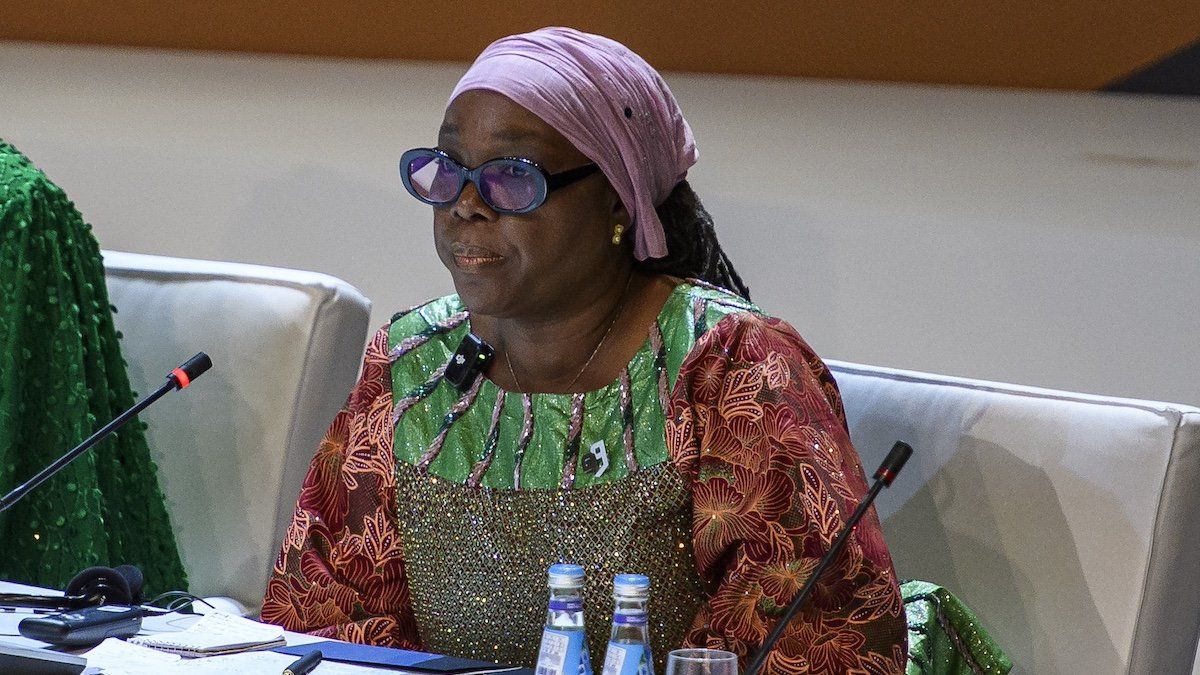UNITED NATIONS – African countries are ramping up calls for permanent representation on the UN Security Council, contending that it’s a paralyzed institution dominated by a few wealthy countries and in desperate need of reform.
When the Security Council was first established in the aftermath of World War II, many African countries were still under colonial rule. In the time since, the framework of the Security Council has largely remained the same, but the world it represents has changed dramatically.
“Many African countries have had different experiences that have led many of us to believe that the current configuration for global governance on peace and security is no longer fit for purpose. The needs of countries during conflict, post-conflict for reconstruction, are not being met in line with the expectations,” Liberian Foreign Minister Sara Beysolow Nyanti told GZERO at the SDG Media Zone during the 79th UN General Assembly in New York City.
“It's important that voices are heard. We talk about leaving no one behind. And if the countries that are affected don’t feel they have adequate and just and equitable representation, then there’s a problem,” Nyanti added.
Nyanti echoed recent calls for African countries to be granted permanent seats on the Security Council. “It needs to happen,” Nyanti said, emphasizing that Africa is the source of “most of the resources of the world” and “critical to global governance.”
“You cannot have a rules-based world order that does not reflect all of the world's people adequately,” Nyanti said.
On Wednesday, during an emergency meeting of the UN Security Council, many African countries, including Sierra Leone, Algeria, and Mozambique, pointed to the council’s ineffective response to the spiraling situation in the Middle East as evidence of the need for reform.
“Increasing geopolitical competition has increasingly turned this chamber into a battleground,” said Manuel Gonzalez, Vice Minister of Mozambique’s Foreign Affairs, referring to Russia’s backing of Iran — which supports Hezbollah — while the US stands alongside Israel. “The security council must restore its relevance and impartiality, therefore Mozambique reiterates its calls on the need for Security Council reform which also takes into consideration the African common position.”
The US recently endorsed granting permanent seats to two African countries but without the veto power wielded by the original five members: the US, Russia, China, France, and the UK. When asked whether permanent seats without veto power would effectively be symbolic, Nyanti said, “I think just talking about veto or non-veto is not the issue. It's about overhauling the entire system.”
“I believe very, very strongly that we need to go back to the beginning, go back to the foundation, look at what’s there, and look at what needs to be totally overhauled and reformed,” she said.
Watch John Haltiwanger's full interview with Foreign Minister Nyanti here.
